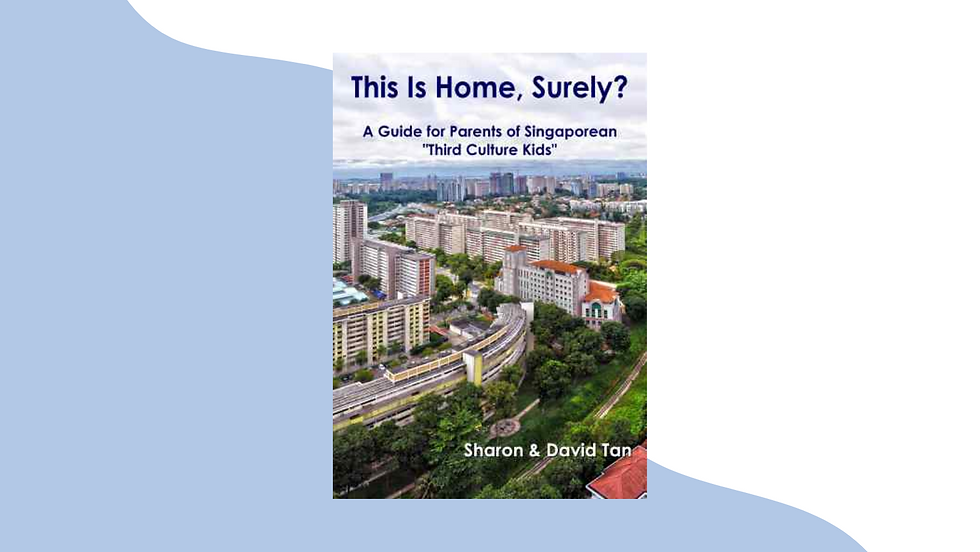Educating Children on the Mission Field
- sharontan5
- May 16, 2021
- 4 min read
Updated: Mar 11, 2023
Raising Children in the Mission Field (Part 2)

As education is a large part of any kid’s life, wherever they are, many parents are most concerned about their children’s education. In Part 2 of ‘raising children in the mission field’, we take a deep dive into this topic with Sharon Tan, a mother of two who has been down this road.
1. What was most challenging about raising children while on missions overseas, and how did you tackle it?
First and foremost, the children have to be well-settled and able to thrive, physically and emotionally, in the environment. We reckoned that if those aspects were well-managed, the education part would be easier as unhappy, resentful children are definitely not going to learn well. So our main focus initially was to have them adjust to the living environment (food, transport, housing, weather etc.), learn some survival local language and make a few friends. As our girls were only three and five years old when we first arrived in the field, it was much easier than arriving with pre-teens or teens! I want to emphasise, though, that our concern for our children’s education should primarily be because it is important for their emotional well-being – if they are struggling too much, their self-esteem suffers, which affects their social life and mental well-being. Academic achievement should be a secondary concern.
2. What preparations did you and David make?
We were very clear from the beginning that we were not going to do full homeschooling! I knew I was not temperamentally equipped to deal with homeschooling young children full-time, and we also had to devote time to our own language learning and acclimatisation, and later on, our work.
School is also important for social reasons. Kids need to have peers to grow alongside. It is only really feasible to experience local culture from a child’s perspective if they go to local school, at least for a while. Learning the local language is also easiest and most natural in a school environment. So we put our kids in local kindergartens, intending to do part-time school and part-time homeschooling in English. When they got older, I would purchase books from Singapore to familiarise them with Singapore schoolwork. The Social Studies and Character and Citizenship Education books were most helpful in teaching them about Singapore. They learned Maths in school, and I “taught” them English by doing a lot of reading with them and encouraging them to write.
We moved them to international school after four years as we found that their English was suffering. Our organisation believes that people learn best in their mother tongue, which is why we do what we do, so we could not in good conscience keep our girls in local school where they had to study all subjects in their second language. By the time they were 12 and 14, both were doing internet school as we judged them independent enough not to require too much supervision. I had to devote some time to helping them with unavailable websites, internet disruptions, power outages, etc. 3. How did the people around you help with your children? We were greatly helped by other foreign families who shared their stories and tips, but the greatest help we received was from a local university student who came to play with and coach our girls, and help them learn the local language.
Some of our friends in Singapore regularly gave us English storybooks, others helped us find second-hand school books and uniforms when we arranged short immersions in Singapore schools for the girls. Social media has made it easier to stay connected, especially between the children; this is very helpful when the time comes to return to Singapore.
4. How did your family navigate the return to Singapore?
We started planning for our return almost as soon as we reached the field! Some major decisions, like schooling, were made with an eye on their eventual return to English-medium education in Singapore. For that reason, we were always careful that they had sufficient exposure to English books and media so that their spoken and written English was of a good standard.
During school vacations, I would make sure to fill the “gaps” between what they learned in school and what they would have been learning in Singapore, at least in English, Maths and Science. Every two years, during the long summer holidays, we would arrange for them to spend a few weeks in Singapore schools and Sunday school, for them to get to know Singapore kids and get a strong dose of Singlish! We were always aware that our stay in that country could end suddenly for various reasons, and we wanted to make sure that the children could transition reasonably smoothly to Singapore. All this took a considerable amount of forward planning and being familiar with the Ministry of Education’s provisions for overseas Singaporeans.
5. Any words of wisdom for parents embarking on this journey? I guess you can summarise it as – plan ahead, make sure your kids are well-settled emotionally where they are, but also familiar enough with Singapore not to resent having to return eventually. Beyond that, don’t assume that schooling everywhere is the same (Singapore’s standards are higher than most other school systems) – parents must make sure to fill any educational gaps so their children can fit back into Singapore schooling more easily.
Whether you are or know someone with children serving in the mission field overseas, for more helpful tips on preparing to live abroad, visits home and eventual return, check out Sharon’s and David’s book, This Is Home, Surely?.
Read Part 1 of ‘Raising Children in the Mission Field’ here.


Comments